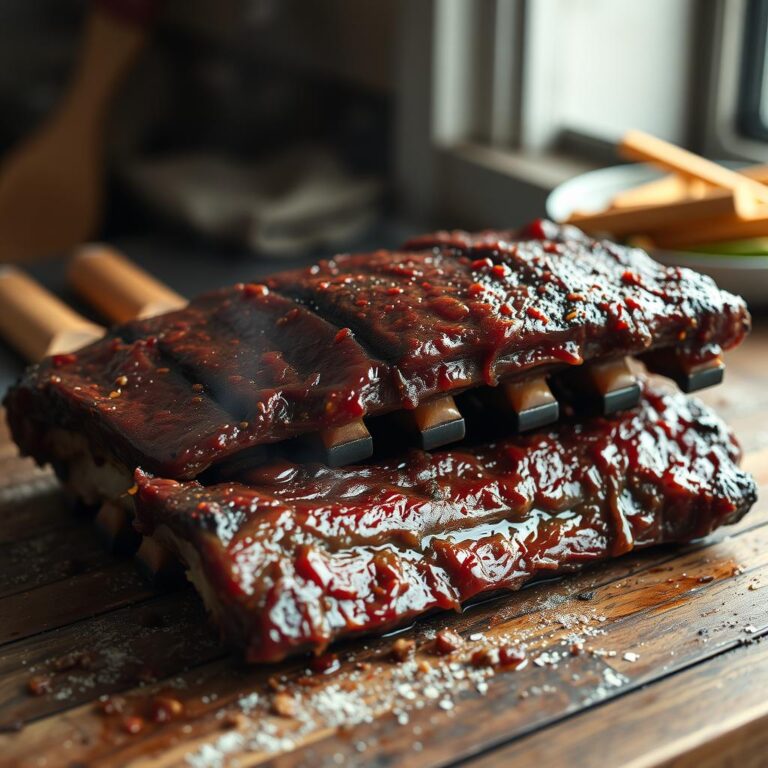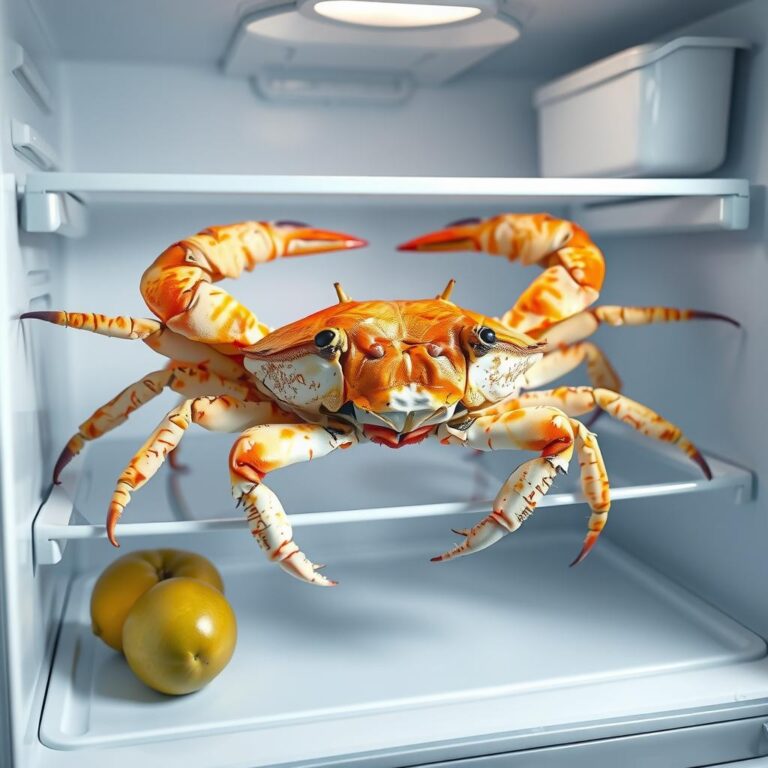Can I freeze cooked chickpeas? That's the question on your mind, right? You've got a batch of perfectly cooked chickpeas, and you're wondering if you can stash them away for later. Let's get straight to it, no BS.
The Lowdown on Freezing Cooked Chickpeas
Freezing cooked chickpeas is absolutely doable. It's a solid way to preserve these nutritional powerhouses and cut down on future cooking time. Think of it as a strategic move in your meal prep game. You know, batch cooking once and eating multiple times.
Why Bother Freezing Cooked Chickpeas?
-
Time Saver: Cooking chickpeas from scratch takes time. Freezing pre-cooked batches means you can have them ready to go whenever you need them.
-
Reduce Waste: Did you cook too many chickpeas? Don't let them go bad in the fridge. Freeze them and use them later. It's about being efficient with your resources.
-
Convenience: Imagine having chickpeas readily available for hummus, stews, salads, or whatever your culinary heart desires. It's all about making your life easier.
Preparing Your Cooked Chickpeas for the Freezer
Okay, so you're on board with freezing your cooked chickpeas. Great. But before you toss them into a bag and call it a day, there are a few things to keep in mind to maintain their quality.
-
Cool 'Em Down: Let the cooked chickpeas cool completely before freezing. Putting hot or warm food in the freezer can raise the temperature and affect other items. We're not trying to ruin your whole freezer vibe.
-
Drain and Rinse: Drain the chickpeas from their cooking liquid and give them a quick rinse. This helps remove excess starch, which can lead to a gummy texture after freezing.
-
Portion Control: Decide how you typically use chickpeas. Portion them into freezer-safe bags or containers in amounts you'll use for a single recipe. This way, you only thaw what you need, preventing waste.
-
Choose Your Container: Freezer bags are great because you can squeeze out the air, minimizing freezer burn. Containers are also an option, but make sure they're airtight.
-
Label and Date: This is crucial. Write the date and contents on the bag or container. Trust me, future you will thank you. You don't want to play the "what's this mystery frozen lump?" game.
The Freezing Process: Step-by-Step
Here's a simple breakdown of how to freeze your cooked chickpeas.
-
Cool: Ensure your chickpeas are completely cooled.
-
Drain & Rinse: Get rid of that excess starch.
-
Portion: Divide into usable amounts. Think about your recipes.
-
Package: Freezer bags or airtight containers. Squeeze out excess air.
-
Label: Date and identify.
-
Freeze: Lay flat for even freezing.
How Long Can You Freeze Cooked Chickpeas?
Generally, cooked chickpeas can be frozen for 8-12 months without a significant drop in quality. After that, they're still safe to eat, but the texture might change a bit. Again, it's all about minimizing freezer burn.
Thawing and Using Your Frozen Chickpeas
Alright, you've got your frozen chickpeas, and you're ready to use them. How do you thaw them?
-
Fridge Thawing: The best way is to transfer the frozen chickpeas to the fridge overnight. This allows for a slow, even thaw.
-
Quick Thaw: Need them faster? Place the bag or container in a bowl of cold water. Change the water every 30 minutes to speed up the process.
-
Microwave Thawing: As a last resort, you can use the microwave. But be careful, as this can sometimes make them a bit mushy. Use the defrost setting and keep a close eye on them.
Once thawed, use the chickpeas as you would fresh ones. Add them to soups, stews, salads, or blend them into hummus.
Troubleshooting: Addressing Common Concerns
-
Texture Changes: Sometimes, frozen chickpeas can become slightly mushy. This is usually due to excess moisture. Rinsing them well before freezing helps.
-
Freezer Burn: This happens when air comes into contact with the chickpeas. Using airtight containers or squeezing out excess air from freezer bags minimizes this.
Recipe Ideas Using Frozen Cooked Chickpeas
Now that you're a pro at freezing and thawing chickpeas, let's talk about some ways to use them.
-
Hummus: The classic. Blend thawed chickpeas with tahini, lemon juice, garlic, and olive oil.
-
Chickpea Salad: Mash thawed chickpeas with avocado, lemon juice, and your favorite seasonings. Perfect for sandwiches or wraps.
-
Roasted Chickpeas: Toss thawed chickpeas with spices and roast them in the oven for a crunchy snack.
-
Chickpea Curry: Add thawed chickpeas to your favorite curry recipe for a protein boost.
Embrace the Freeze
Freezing cooked chickpeas is a game-changer. It saves you time, reduces waste, and makes meal prep a breeze. By following these simple steps, you can enjoy perfectly preserved chickpeas whenever you need them. So next time you've got a surplus, don't hesitate. Freeze those cooked chickpeas with confidence.

Can I freeze cooked chickpeas? That's the question on your mind, right? You've got a batch of perfectly cooked chickpeas, and you're wondering if you can stash them away for later. Let's get straight to it, no BS.
The Lowdown on Freezing Cooked Chickpeas
Freezing cooked chickpeas is absolutely doable.
It's a solid way to preserve these nutritional powerhouses and cut down on future cooking time.
Think of it as a strategic move in your meal prep game.
You know, batch cooking once and eating multiple times.
Why Bother Freezing Cooked Chickpeas?
-
Time Saver: Cooking chickpeas from scratch takes time.
Freezing pre-cooked batches means you can have them ready to go whenever you need them. -
Reduce Waste: Did you cook too many chickpeas?
Don't let them go bad in the fridge.
Freeze them and use them later.
It's about being efficient with your resources. -
Convenience: Imagine having chickpeas readily available for hummus, stews, salads, or whatever your culinary heart desires.
It's all about making your life easier.
Preparing Your Cooked Chickpeas for the Freezer
Okay, so you're on board with freezing your cooked chickpeas.
Great.
But before you toss them into a bag and call it a day, there are a few things to keep in mind to maintain their quality.
-
Cool 'Em Down: Let the cooked chickpeas cool completely before freezing.
Putting hot or warm food in the freezer can raise the temperature and affect other items.
We're not trying to ruin your whole freezer vibe. -
Drain and Rinse: Drain the chickpeas from their cooking liquid and give them a quick rinse.
This helps remove excess starch, which can lead to a gummy texture after freezing. -
Portion Control: Decide how you typically use chickpeas.
Portion them into freezer-safe bags or containers in amounts you'll use for a single recipe.
This way, you only thaw what you need, preventing waste. -
Choose Your Container: Freezer bags are great because you can squeeze out the air, minimizing freezer burn.
Containers are also an option, but make sure they're airtight. -
Label and Date: This is crucial.
Write the date and contents on the bag or container.
Trust me, future you will thank you.
You don't want to play the "what's this mystery frozen lump?" game.
The Freezing Process: Step-by-Step
Here's a simple breakdown of how to freeze your cooked chickpeas.
-
Cool: Ensure your chickpeas are completely cooled.
-
Drain & Rinse: Get rid of that excess starch.
-
Portion: Divide into usable amounts.
Think about your recipes. -
Package: Freezer bags or airtight containers.
Squeeze out excess air. -
Label: Date and identify.
-
Freeze: Lay flat for even freezing.
How Long Can You Freeze Cooked Chickpeas?
Generally, cooked chickpeas can be frozen for 8-12 months without a significant drop in quality.
After that, they're still safe to eat, but the texture might change a bit.
Again, it's all about minimizing freezer burn.
Thawing and Using Your Frozen Chickpeas
Alright, you've got your frozen chickpeas, and you're ready to use them.
How do you thaw them?
-
Fridge Thawing: The best way is to transfer the frozen chickpeas to the fridge overnight.
This allows for a slow, even thaw. -
Quick Thaw: Need them faster?
Place the bag or container in a bowl of cold water.
Change the water every 30 minutes to speed up the process. -
Microwave Thawing: As a last resort, you can use the microwave.
But be careful, as this can sometimes make them a bit mushy.
Use the defrost setting and keep a close eye on them.
Once thawed, use the chickpeas as you would fresh ones.
Add them to soups, stews, salads, or blend them into hummus.
Troubleshooting: Addressing Common Concerns
-
Texture Changes: Sometimes, frozen chickpeas can become slightly mushy.
This is usually due to excess moisture.
Rinsing them well before freezing helps. -
Freezer Burn: This happens when air comes into contact with the chickpeas.
Using airtight containers or squeezing out excess air from freezer bags minimizes this.
Recipe Ideas Using Frozen Cooked Chickpeas
Now that you're a pro at freezing and thawing chickpeas, let's talk about some ways to use them.
-
Hummus: The classic.
Blend thawed chickpeas with tahini, lemon juice, garlic, and olive oil. -
Chickpea Salad: Mash thawed chickpeas with avocado, lemon juice, and your favorite seasonings.
Perfect for sandwiches or wraps. -
Roasted Chickpeas: Toss thawed chickpeas with spices and roast them in the oven for a crunchy snack.
-
Chickpea Curry: Add thawed chickpeas to your favorite curry recipe for a protein boost.
Embrace the Freeze
Freezing cooked chickpeas is a game-changer.
It saves you time, reduces waste, and makes meal prep a breeze.
By following these simple steps, you can enjoy perfectly preserved chickpeas whenever you need them.
So next time you've got a surplus, don't hesitate.
Freeze those cooked chickpeas with confidence.
Maximizing Chickpea Storage: Exploring Long-Term Freezing for Cooked Chickpeas
Let's dive deeper into the world of freezing cooked chickpeas and really nail down how to make the most of it.
We're not just talking about chucking them in the freezer; we're talking about optimizing the process for the best possible results.
Understanding Chickpea Composition and Freezing
Chickpeas, like any food, have a specific composition that affects how they freeze and thaw.
They're mostly water, and that water can form ice crystals that damage the cell structure.
This is why you might notice a slight texture change after thawing.
However, by following the right steps, you can minimize this.
Advanced Techniques for Freezing Cooked Chickpeas
-
Flash Freezing: For an even better texture, try flash freezing.
Spread the cooked and drained chickpeas on a baking sheet in a single layer and freeze for about an hour.
Once they're frozen solid, transfer them to a freezer bag or container.
This prevents them from clumping together and freezes them faster, reducing ice crystal formation. -
Vacuum Sealing: If you're serious about minimizing freezer burn, consider vacuum sealing your cooked chickpeas.
This removes almost all the air, preventing oxidation and preserving the quality for longer.
It's an investment, but if you freeze frequently, it's worth it. -
Freezing Chickpea Puree: You can also freeze cooked chickpeas as a puree.
This is great for making hummus or adding to soups and sauces.
Just blend the cooked chickpeas with a little water or broth until smooth, then freeze in portioned containers.
Dealing with Texture Changes in Frozen Chickpeas
Okay, so you've thawed your chickpeas, and they're a little softer than you'd like.
Don't panic! There are ways to fix this.
-
Roasting: If you're planning on roasting them anyway, the texture change won't matter.
The high heat will crisp them up nicely. -
Mashing: If you're making hummus or chickpea salad, the slightly softer texture can actually be an advantage.
They'll be easier to mash and blend. -
Simmering: If you're adding them to a soup or stew, the simmering process will help them regain some of their firmness.
Optimizing Chickpea Cooking for Freezing
Believe it or not, how you cook your chickpeas in the first place can affect how well they freeze.
-
Don't Overcook: Overcooked chickpeas will become mushier after freezing.
Cook them until they're tender but still hold their shape. -
Salt Strategically: Salt can affect the texture of cooked chickpeas.
Some people prefer to salt the cooking water, while others wait until after they're cooked.
Experiment to see what works best for you. -
Soaking is Key: Soaking dried chickpeas before cooking them is crucial for even cooking and better texture.
Don't skip this step!
Recipes Designed for Frozen Chickpeas
Let's get practical.
Here are some recipes that are perfect for using frozen cooked chickpeas.
-
Hearty Chickpea and Vegetable Stew: This is a great way to use frozen chickpeas because the stewing process helps them absorb flavor and regain some texture.
-
Spicy Chickpea Burgers: The slightly softer texture of frozen chickpeas makes them perfect for mashing into burgers.
-
Creamy Chickpea Soup: This soup is easy to make with frozen chickpea puree.
Freezing Chickpeas vs. Canning Chickpeas: Which is Better?
Both freezing and canning are great ways to preserve chickpeas, but which is better?
-
Freezing: Preserves more of the original flavor and texture.
It's also easier to control the ingredients and avoid added salt or preservatives. -
Canning: Convenient and shelf-stable, but can alter the flavor and texture.
Commercially canned chickpeas often contain added salt.
Ultimately, the best method depends on your personal preferences and storage space.
Final Thoughts on Freezing Chickpeas
Freezing cooked chickpeas is a simple and effective way to save time and reduce waste.
By following these tips and tricks, you can ensure that your frozen chickpeas are just as delicious and versatile as fresh ones.
So go ahead, cook up a big batch and freeze those chickpeas with confidence!
Now you have the info needed for deciding – can I freeze cooked chickpeas?
FAQ about Freezing Cooked Chickpeas
Q: Will freezing cooked chickpeas change their taste?
A: The taste shouldn't change dramatically, but the texture might be slightly softer.
Q: How do I prevent freezer burn on my chickpeas?
A: Use airtight containers or freezer bags, squeeze out excess air, and consider vacuum sealing.
Q: Can I freeze chickpeas that have been seasoned?
A: Yes, you can. Just be aware that the flavors might intensify slightly during freezing.
Q: Is it safe to refreeze chickpeas after thawing?
A: It's generally not recommended to refreeze thawed chickpeas, as it can affect their texture and safety.
Q: Can I freeze canned chickpeas?
A: Yes, you can freeze canned chickpeas. Drain and rinse them first, and follow the same freezing procedures as with cooked chickpeas.
Q: Do I need to cook chickpeas before freezing them?
A: Yes, it's best to cook chickpeas before freezing them for optimal texture and flavor.
Q: How can I use frozen chickpeas in hummus?
A: Thaw the chickpeas completely, then blend them with the other hummus ingredients as usual.
Q: Can I freeze chickpeas cooked in broth?
A: Yes, you can freeze chickpeas in their cooking broth for added flavor. Just be sure to cool them completely before freezing.
Q: What is the best way to thaw frozen chickpeas?
A: The best way is to thaw them in the refrigerator overnight.
Q: How do I know if my frozen chickpeas have gone bad?
A: If they have a strange odor or discoloration, or if they're covered in ice crystals, it's best to discard them.
Freezing cooked chickpeas is a smart move for any home cook looking to save time and reduce food waste.


